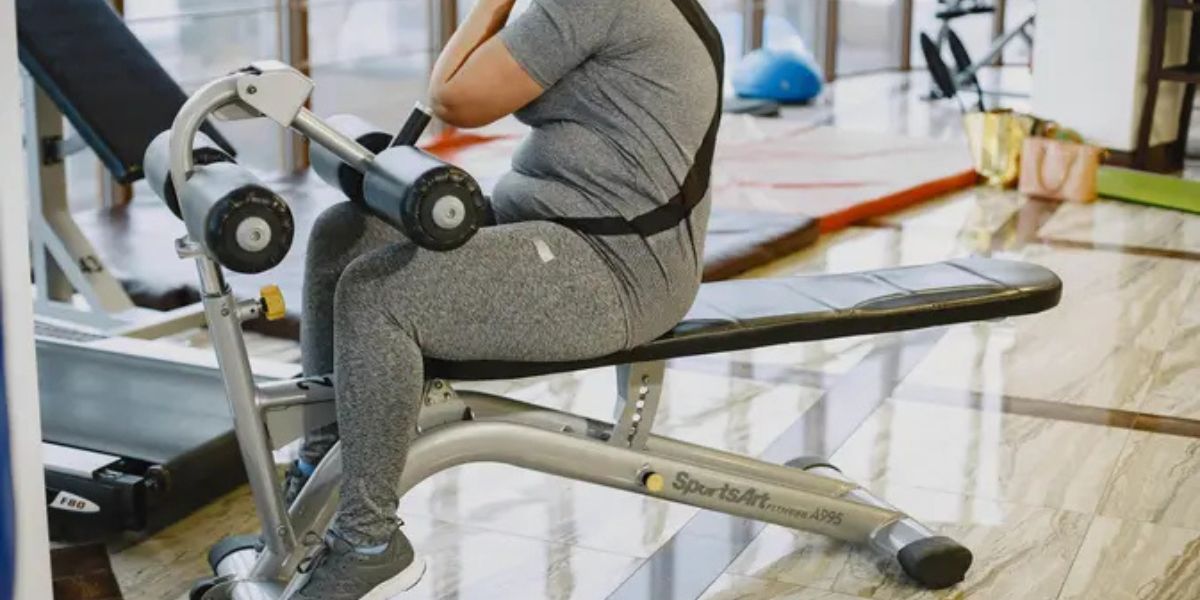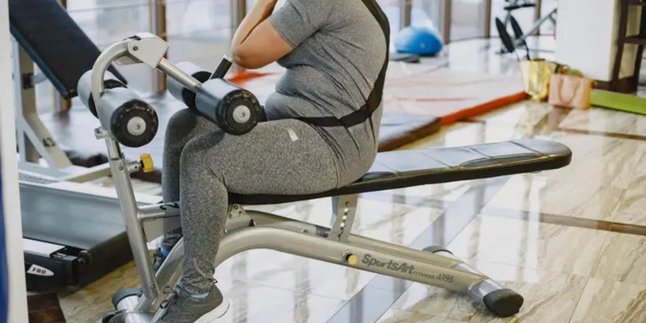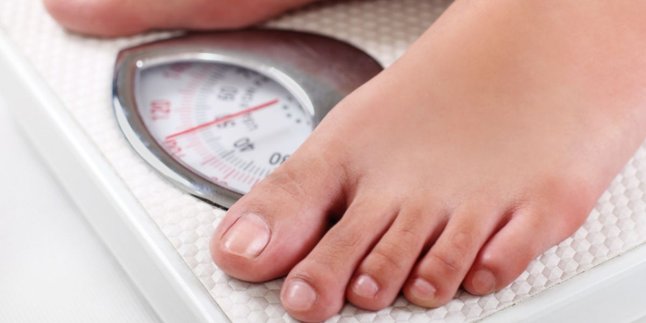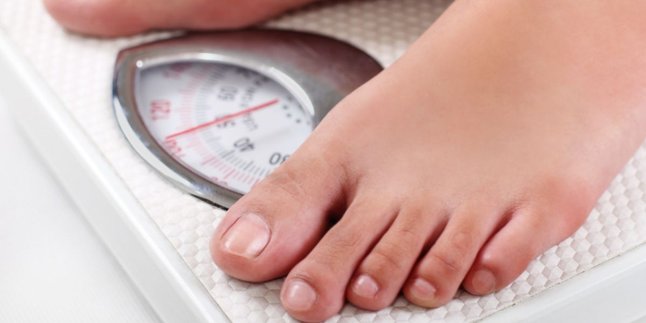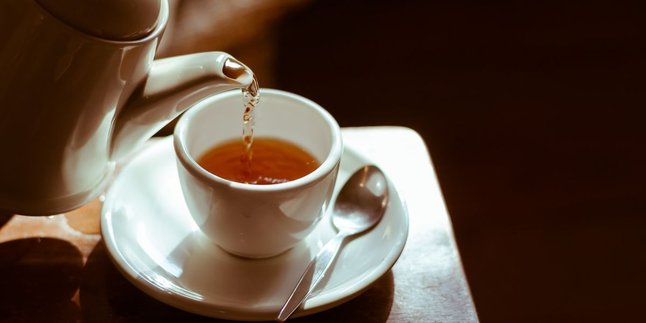Eid always becomes a special moment filled with happiness, togetherness, and of course, delicious dishes. Various traditional foods like chicken opor, rendang, ketupat, and a variety of cookies often tempt us to eat without limits.
However, behind the enjoyment, many people experience significant weight gain after Eid. Uncontrolled eating patterns and lack of physical activity during the long holiday are the main causes of this condition.
Weight gain after Eid is actually not something that cannot be avoided. With the right strategies, you can still enjoy your favorite foods without having to worry about the numbers on the scale skyrocketing.
Curious about how to do it? Check out the complete information summarized on Wednesday (2/4/2025).
1. How to Avoid Weight Gain
1. Limit Consumption of Fatty and Coconut Milk Foods
One of the main causes of weight gain after Eid is the high consumption of foods containing fat and coconut milk. Try to control portion sizes and avoid overindulging in traditional Eid dishes. As an alternative, choose healthier foods such as vegetables, lean proteins, and foods that are steamed or boiled.
2. Increase Consumption of Vegetables and Fruits
Vegetables and fruits are rich in fiber, which can help facilitate digestion and provide a feeling of fullness for a longer time. By consuming more vegetables and fruits, you can reduce the intake of high-calorie foods. Additionally, the nutrients in vegetables and fruits can help keep the body healthy and hydrated.
3. Meal Portion Control
Although the Lebaran food is very tempting, it is important to control portion sizes. Avoid eating large amounts at once, and try to eat smaller portions more frequently. Using smaller plates can also help control the amount of food consumed to avoid overeating.
4.Don't Skip Breakfast
Many people think that skipping breakfast can help lose weight. In fact, breakfast is an important meal to keep the body's metabolism optimal. Choose healthy breakfast options like oatmeal, boiled eggs, or yogurt with fruit pieces to provide energy without adding weight.
2. 5. Stay Active and Exercise
After enjoying various Eid dishes, don’t forget to stay active. You can start with light exercises like walking, jogging, or cycling. If you don’t have much time, simply do simple activities like taking the stairs or cleaning the house to keep your body active and burn calories.
6. Drink Enough Water
Water is very important to maintain fluid balance in the body and assist in the metabolic process. Avoid sugary drinks and sodas that are high in calories. Drink at least 8 glasses of water a day to help flush out toxins from the body and keep your weight stable.
7. Reduce Sugar and Simple Carbohydrate Intake
Sweets like cookies, syrup, and packaged drinks are often consumed excessively during Eid. Sugar and simple carbohydrates can cause spikes in blood sugar and increase appetite. Try to reduce the consumption of these foods and choose complex carbohydrate sources like brown rice, sweet potatoes, or whole grain bread.
8. Get Enough Sleep
Lack of sleep can disrupt the body’s metabolism and increase hormones that stimulate appetite. Make sure you get enough sleep, which is around 7-8 hours per night, to keep your body healthy and your weight under control.
3. Diseases That Lurk During Eid
Here are some common illnesses that arise during and after Lebaran:
1.High Cholesterol
Traditional Lebaran dishes such as rendang, chicken opor, curry, and various other coconut milk dishes contain high amounts of saturated fats. If consumed excessively, these foods can increase cholesterol levels in the blood. High cholesterol levels can lead to narrowing of blood vessels, increasing the risk of heart disease, as well as triggering heart attacks and strokes. Therefore, it is important to control food portions and balance them with the consumption of vegetables and fruits.
2.Diabetes
During Lebaran, the consumption of sweet foods and drinks such as cookies, syrup, and soft drinks is often uncontrolled. The spike in blood sugar levels due to high sugar intake can increase the risk of diabetes for those who do not have a history of this disease.
Meanwhile, for diabetes sufferers, an uncontrolled diet can worsen their health condition. To avoid this risk, it is recommended to choose low-sugar foods, limit the consumption of cookies, and increase fiber intake from vegetables and fruits.
3. Uric Acid
Foods high in purines such as red meat, offal, seafood, and legumes, which are often served during Eid, can cause an increase in uric acid levels in the body. This can trigger gout attacks, characterized by joint pain, swelling, and inflammation, especially in the feet. To prevent this, it is advisable to limit the consumption of high-purine foods and drink plenty of water to keep uric acid levels stable in the body.
4. Digestive Disorders
Drastic changes in diet during Eid, especially with the increased consumption of fatty and coconut milk-based foods, can lead to various digestive disorders. Some common problems include diarrhea, constipation, bloating, and increased stomach acid (gastritis). To avoid this disturbance, it is advisable to regulate portion sizes, chew food well, and avoid overeating at one time.
5.Hypertension (High Blood Pressure)
Foods high in salt and fat, such as chicken opor, fried liver sambal, and other processed foods, can cause an increase in blood pressure, especially for those with hypertension. If blood pressure is uncontrolled, the risk of heart disease and stroke will increase. Therefore, it is recommended to limit salt intake, avoid overly salty foods, and maintain a healthy diet by increasing the consumption of vegetables and fruits.
6.Obesity
Lebaran often becomes a moment when eating patterns become uncontrolled, while physical activity tends to decrease. The habit of consuming high-calorie foods without being balanced by physical activity can lead to the accumulation of fat in the body, resulting in obesity. Obesity itself is a risk factor for various chronic diseases such as diabetes, heart disease, and respiratory disorders. To avoid this, it is important to maintain a balance between food intake and physical activity, for example by regularly walking or doing light exercise after Eid.
(kpl/ses)
Disclaimer: This translation from Bahasa Indonesia to English has been generated by Artificial Intelligence.
